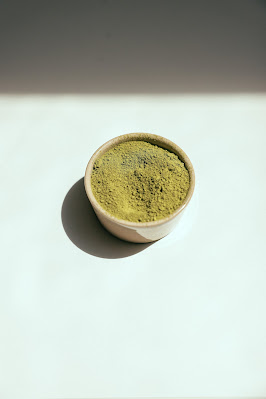As an amazon associate, I earn from qualifying purchases.
Introduction
In the realm of nutritional supplements, a select few have gained remarkable attention for their potential health benefits. Among these standouts are omega-3 oil, creatine, multivitamins, and sea moss. From supporting heart health to enhancing cognitive function, these supplements have been the subject of extensive research, shedding light on their impressive array of benefits. In this blog post, we'll delve into the scientific evidence behind the health benefits of these supplements, providing you with a comprehensive guide to their potential impact on your well-being.
Omega-3 Oil
Omega-3 fatty acids, particularly EPA (eicosapentaenoic acid) and DHA (docosahexaenoic acid), are renowned for their role in promoting heart health, reducing inflammation, and supporting brain function. Scientific studies have demonstrated that omega-3 oil can help lower triglyceride levels, reduce the risk of heart disease, and alleviate symptoms of depression and anxiety (Kromhout et al., 2010). Additionally, omega-3 oil has been associated with improved cognitive function and may play a role in reducing the risk of age-related cognitive decline (Yurko-Mauro et al., 2010).
Creatine
As a popular supplement among athletes and fitness enthusiasts, creatine has garnered attention for its potential to enhance muscle strength and exercise performance. Research has indicated that creatine supplementation can increase muscle mass, improve strength, and enhance high-intensity exercise performance (Cooper et al., 2012). Moreover, creatine has shown promise in supporting cognitive function, with studies suggesting its potential to mitigate the effects of sleep deprivation and enhance memory and intelligence (Rae et al., 2003).
Multivitamins
Multivitamins serve as a convenient way to ensure adequate intake of essential vitamins and minerals, filling potential gaps in the diet. While controversy surrounds the efficacy of multivitamin supplements, they can be beneficial for individuals with nutritional deficiencies or specific health conditions. Research has linked multivitamin use to a reduced risk of certain chronic diseases, including cardiovascular disease and cancer, particularly in populations with poor dietary habits (Huang et al., 2020). It's important to note that multivitamins should not replace a balanced diet but can serve as a valuable complement to promote overall health and well-being.
Sea Moss
Sea moss, also known as Irish moss, has gained popularity for its potential health benefits, ranging from immune support to digestive health. Rich in vitamins, minerals, and antioxidants, sea moss has been studied for its anti-inflammatory, antimicrobial, and prebiotic properties (Ebringer et al., 2019). Research suggests that sea moss may help support a healthy gut microbiome, enhance immune function, and promote skin health, making it a versatile addition to a balanced diet.
Well... wrapping up!
The health benefits of omega-3 oil, creatine, multivitamins, and sea moss are supported by a growing body of scientific evidence, emphasizing their potential to optimize overall health and well-being. Whether you're seeking to support heart health, enhance exercise performance, fill nutritional gaps, or boost immune function, these supplements offer a diverse array of benefits. As with any dietary supplement, it's essential to consult with a healthcare professional before incorporating these supplements into your regimen, ensuring that they align with your individual health needs and goals.
References
Kromhout, D., Giltay, E. J., & Geleijnse, J. M. (2010). n-3 fatty acids and cardiovascular events after myocardial infarction. The New England Journal of Medicine, 363(21), 2015-2026.
Yurko-Mauro, K., McCarthy, D., Rom, D., Nelson, E. B., Ryan, A. S., Blackwell, A., & Salem Jr, N. (2010). Beneficial effects of docosahexaenoic acid on cognition in age-related cognitive decline. Alzheimer's & Dementia, 6(6), 456-464.
Cooper, R., Naclerio, F., Allgrove, J., & Jimenez, A. (2012). Creatine supplementation with specific view to exercise/sports performance: an update. Journal of the International Society of Sports Nutrition, 9(1), 33.
Rae, C., Digney, A. L., McEwan, S. R., & Bates, T. C. (2003). Oral creatine monohydrate supplementation improves brain performance: a double-blind, placebo-controlled, cross-over trial. Proceedings of the Royal Society of London. Series B: Biological Sciences, 270(1529), 2147-2150.
Huang, H. Y., Caballero, B., Chang, S., Alberg, A.








No comments:
Post a Comment